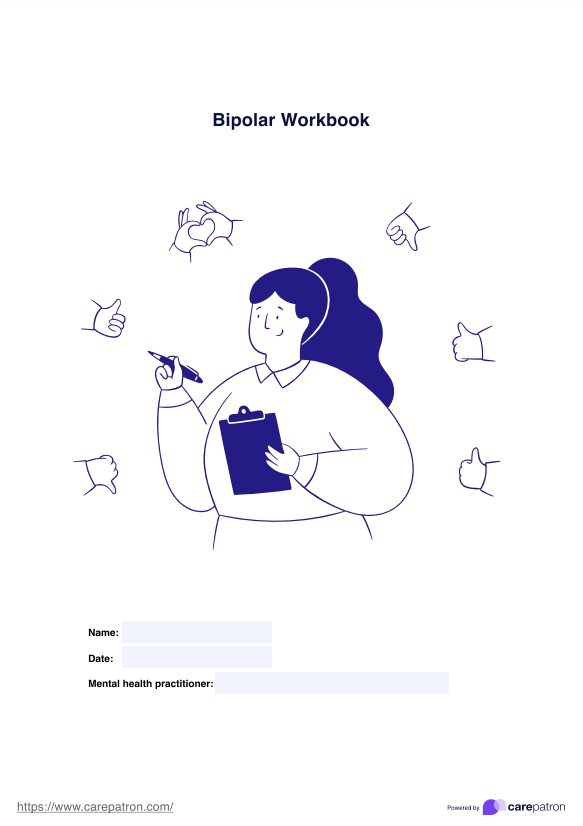The Bipolar Workbook offers targeted exercises and tools designed to help individuals recognize, understand, and effectively control their mood swings.

Bipolar Workbook
Explore how to help your patients cope with bipolar disorder with a free Bipolar Workbook. Download the PDF template here.
Bipolar Workbook Template
Commonly asked questions
Yes, the Bipolar Workbook addresses various facets of mood disorders, including recurring depression, providing insights and exercises for navigating depressive episodes.
Absolutely! The Bipolar Workbook is designed with mental health professionals in mind, offering a range of tools and resources tailored for clinical psychologists, cognitive behavioral therapists, and other experts specializing in mood disorders. These tools are invaluable for addressing bipolar symptoms and supporting clients through the lifelong challenges associated with the condition. By integrating cognitive therapy techniques, the workbook provides structured strategies to help clients identify triggers, monitor mood patterns, and develop personalized coping mechanisms.
EHR and practice management software
Get started for free
*No credit card required
Free
$0/usd
Unlimited clients
Telehealth
1GB of storage
Client portal text
Automated billing and online payments











